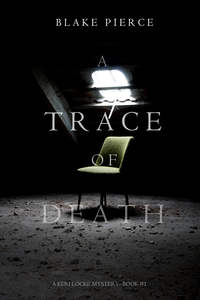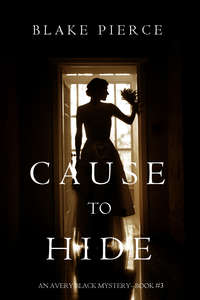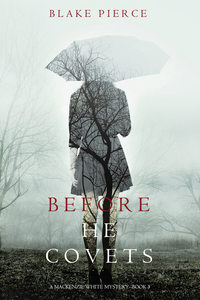
Полная версия
Once Shunned
At that moment, Chief Brennan’s cell phone rang. He took the call, then quickly cupped the phone with his hand to tell Riley and her colleagues …
“This is Agent Sturman on the phone. He says his people got in touch with the Copelands in Europe. They said their camera was set up to record continuously, and to save everything it recorded during their absence. Sturman says they understand the urgency of the situation, and they’ve given us a permission to look at their security feed. They’ve also turned over all the information we need to view it.”
Riley saw Bill’s face light up.
“That means we won’t have to go scrambling after a warrant, then deal with the security company,” he said.
Riley, too, was excited. She asked, “How do we access the feed?”
Jenn suggested, “From what I know about these systems, we ought to be able to connect online, from any computer or even cell phone.”
“I’ll find out,” Chief Brennan said.
He spoke again with Sturman on the phone and jotted down some notes. Then he ended the call and showed the group his notes.
He said, “Sturman gave me a link, a sign-in name, and a password. We should be able to check it out right here and now.”
Riley looked at Jenn, who obviously understood these systems better than she or Bill. She said to Jenn, “Go ahead, see what you can do.”
Chief Brennan handed his notes to Jenn, who took her laptop out of her bag and opened it up on the table. It took just a few seconds for her to make the connection. Everybody at the table crowded around the laptop so they could see the image on the screen.
The picture wasn’t at all sharp or clear. But it was exactly what Riley had expected, based on the position of the camera.
She pointed and said, “Look, this is the street right in front of the Copeland house. Although you can’t see it, Robin Scoville’s house is out of frame, right across the street.”
“So what are we looking for?” Chief Brennan asked.
Riley stifled a sigh.
That’s a good question, she thought.
She thought back to her attempt to connect with the killer’s mind back at Robin Scoville’s house. She remembered imagining how the killer found Robin staring out her front window, then creeping up behind her and taking her by surprise.
Robin had been looking at something outside. Riley was sure of it.
She said to the others, “We’re looking for anything going on in the very early hours of that morning. We’re not likely to see the actual killer out on the street, but we could get lucky. It seemed that Robin was looking out her front window when she was attacked. Maybe we can get a clue what she saw out there. I don’t know what it might be. I hope we know it if we see it ourselves.”
Then she said to Chief Brennan, “You said the time of Robin’s death was around four a.m., right?”
Brennan shrugged. “That’s the approximation the medical examiner gave us,” he replied.
“It’s something we can work with,” Riley said. “Jenn, start the footage at, say, three thirty. Run it fast until we see something interesting.”
Jenn fast-forwarded through the footage. At first, the street was empty. Then a car drove by without stopping. A few minutes later, another car went by and the street was empty again.
Then Jenn stopped the feed.
“What’s that?” she exclaimed, pointing at something large and bulky that had come into view.
Looking at the still frame, Chief Brennan said, “It’s just a garbage truck. Nothing sinister about that.”
Maybe not, Riley thought.
Even so, she said to Jenn, “Back it up and run it slowly.”
Jennifer backed up the feed to just before the garbage truck appeared. Then she ran it frame by frame. The truck was the kind with mechanical arms that automatically picked up garbage bins. Although the camera did not show Robin’s house, it did show the machine picking up the bin on her curb and dumping it into the truck.
But Riley saw something much more important than that.
She pointed at the screen and said, “There’s a man right there.”
Riley’s companions peered more closely at the screen as Jenn continued to run through the footage frame by frame. Sure enough, a man was walking alongside the truck. The low-resolution image didn’t show him at all clearly. He appeared as little more than a fuzzy silhouette.
When the truck finished dumping Robin’s bin, it began to drive on to the next house. But the man just stood there.
Riley realized with a tingle …
He’s staring at Robin’s house.
Then Riley gasped and said to Jenn …
“Stop on that frame!”
Jenn stopped the feed, stared at the image, and asked …
“What’s he doing now?”
The shadowy figure seemed to have raised one arm.
“Almost looks like he’s aiming a gun,” Brennan said. “But the victim wasn’t shot.”
“It looks to me like he’s pointing at something,” Bill said.
“Pointing at the victim?” Jenn asked. “Threatening her?”
Riley said, “Keep running it slowly.”
Jenn ran the footage frame by frame by frame. Riley and her colleagues could see the man standing there for a moment, arm raised, staring in the direction of the victim’s house. Then he lowered his arm and hurried out of the frame.
Riley said to Jenn, “Run the whole thing again.”
Jenn backed up the footage to where the truck was coming into view, than ran it slowly. Again, Riley and her colleagues saw the truck stop to pick up Robin’s garbage bin. Again, they saw a man walking alongside the truck. They saw the truck start to pull out of view, then the man standing, gesturing, and finally leaving the scene.
“Who was that guy?” Chief Brennan asked in an amazed voice.
“What was he doing?” Jenn added.
And where did he go? Riley wondered.
CHAPTER EIGHT
Riley sighed in discouragement. There simply was nothing more to see.
She and her colleagues had been staring hard at the screen as Jenn ran the security camera footage several times. But the camera wasn’t well focused for that distance from the house it was set up to protect. The man walking alongside the truck remained an indistinct blur.
They’d found no clue to suggest why he’d suddenly walked out of the frame, or where he’d gone. He had never come back into view.
Riley said, “We’ve got to find out who that man is. He and the truck driver seem to be the only signs of life on that street at that time.”
“This guy was on the move at the approximate time of the murder,” Jenn added. “We could be sitting here watching the killer.”
“The truck appears to have continued on its way without him,” Bill said. “We can’t be sure they were even supposed to be together.”
“I think I know how to find some answers,” Chief Brennan said. He pulled out his cell phone. “I’ve got a direct number for Roger Link, the director of Public Works here in Wilburton.”
Brennan punched in a number, then put the call on speakerphone so Riley and her colleagues could hear.
When Brennan got the director on the line, he said, “Roger, this is Clark Brennan.”
The voice replied cheerfully, “Hey, how’re you doing, Clark?”
Brennan scratched his chin and said, “Well, I’m hoping you can help me with a problem. I’m sure you know about the murder that happened the night before last.”
“Yeah. Awful thing.”
Brennan said, “Some FBI agents and I have been looking at a security feed, and we see that a waste collection truck went by the victim’s house at about the time of the murder. There was a guy on foot alongside that truck, and he acted a little oddly.”
Riley could hear the director gasp.
He said, “Surely you don’t suspect any of our sanitation guys.”
Brennan said, “Honestly, Roger, we don’t know what the hell to think. But we need to know who was working that particular route that night.”
“Our guys usually work alone,” the director replied. “Now that we’re using these robotic arm pickup vehicles, they don’t even interact with people on their routes anymore. Generally speaking, things are better this way.”
Brennan told him Robin Scoville’s address.
“OK, I’ll see what I can find out,” the director said.
Riley and her colleagues heard clattering on a keyboard. Then the director spoke again.
“I may have found out something for you. This is a little unusual. The driver on that route’s name is Dick Abbott. That night he did have someone kind of working with him, a young guy named Wesley Mannis. It seems that Wesley lives at Wilburton House, an IDD facility.”
Jenn asked, “IDD?”
“Intellectual and developmental disabilities,” the director said.
Chief Brennan squinted and asked, “So does that mean he’s retarded or physically handicapped or …?”
“I wouldn’t know,” the director said. “But the facility and the city run a program together for live-in IDD residents. The city hires the residents for jobs outside the facility, helping them transition into regular lives. This Wesley Mannis was part of that program, and his job was sort of a made-up one, something that wouldn’t be too demanding. Really, he just walked alongside the truck and made sure no garbage got dropped. Not much of a job, but it gave him something to do until …”
The director paused. Riley had to bite her tongue to keep from asking …
“Until what?”
After another clatter of keys, the director said, “Two days ago the driver filed a report that Wesley disappeared sometime during that morning’s shift. We’re required to do that when these workers don’t show up or wander off.”
“That was the morning Robin Scoville was murdered,” Jenn said.
“Can you pinpoint the time?” Brennan asked.
“No,” the director replied. “This doesn’t say exactly when, where, or why Wesley skipped out. Apparently Wesley just walked away somewhere along the route and the driver didn’t miss him right away. The Public Works Department alerted Wilburton House that one of their residents had walked off on a job and … well, that’s all the report says.”
Riley asked, “Nothing about whether Wesley eventually turned up at Wilburton House?”
“No, I guess you’ll have to find that out from the staff there.”
“We’ll do that, thanks,” Chief Brennan said.
He ended the call and looked back and forth at Riley and her two colleagues.
“What do you think?” he asked the three agents. “Maybe this Wesley Mannis is our killer?”
Riley had no idea, and judging from their silence, she was sure neither Jenn nor Bill did either.
“If he is,” Jenn finally said tentatively, “we’ve got him.”
“Now wouldn’t that be nice and easy?” Bill muttered.
But the possibility didn’t quite add up to Riley. Had the same resident from the same facility gone to New Haven a week ago and killed Vincent Cranston during his morning jog on the Friendship Woods trail? Riley found that hard to believe.
She said to Brennan, “We need to check in with Wilburton House.”
Brennan nodded and punched another number on his cell phone.
When he got the facility’s female receptionist on the line, he said, “Police Chief Clark Brennan here. I’ve got three FBI agents listening in on this call. We need to know—do you have a live-in resident there named Wesley Mannis?”
“Yes.”
“Is he in the facility right now?”
“I’ll check.” After a brief pause, the receptionist said, “Yes, he’s in his room.”
Apparently unsure what to ask next, Brennan looked appealingly at Riley and her colleagues.
Riley said to the receptionist, “We need to know about Wesley Mannis’s activities two days ago, during the very early morning hours.”
A short silence fell.
Then the receptionist said, “I’m sorry, and I hope you understand, but I’m not very comfortable sharing information about a patient over the phone like this. Could you come and talk to someone on the staff in person?”
“We’ll be right there,” Chief Brennan said.
Brennan drove Riley and her colleagues across town to Wilburton House. As Brennan parked his car, Riley was impressed by the size of the facility, which looked like a tastefully designed small mansion.
As they all went inside, they were immediately greeted by a tall, willowy, smiling woman dressed in cheerful pastel colors.
She stepped toward the police chief and shook his hand and said, “You must be Clark Brennan. I don’t believe we’ve met. I’m Dr. Amy Rhind, and I’m the director of the facility.”
Riley, Bill, and Jenn produced their badges and introduced themselves to her. Dr. Rhind invited them to sit down in the comfortable lobby.
She said, “I understand that you’re here about one of our residents, Wesley Mannis.”
Her brow knitted with worry and she added, “I’m glad you’re here. Perhaps you can help us understand what has happened to him. I’m afraid it’s something of a mystery.”
That word jolted Riley a little.
A mystery.
She’d been hoping for answers, not questions.
She heard Bill groan softly.
A mystery?
This might not be so nice and easy after all.
CHAPTER NINE
Riley was beginning to feel worried. They had come here looking for a solution, not for another mystery. She couldn’t imagine what Dr. Rhind had meant just now when she’d said …
“Perhaps you can help us understand what has happened to him.”
Hadn’t the receptionist just told Riley and her colleagues on the phone that Wesley Mannis was in his room?
Riley asked, “Are you saying that Wesley is missing?”
Dr. Rhind shook her head. “No, he’s here, but …” She fell silent for a moment and said, “Could you please explain why you’re here?”
Chief Brennan said, “Dr. Rhind, we understand that Wesley is part of a program your facility has worked out with the city. He’s been working with a sanitation driver during an early morning shift. Is that right?”
“That’s right,” Dr. Rhind said.
Brennan continued, “Well, we caught him on a security video. He was right outside the home of a woman who was murdered that night. Then he disappeared from view.”
Dr. Rhind’s eyes widened.
She said, “Oh, no. Surely you don’t suspect that Wesley …”
Her voice trailed off and she glanced about uneasily.
Trying to sound reassuring, Riley said, “We don’t know what to think, Dr. Rhind. We just need to talk with Wesley.”
Dr. Rhind said, “I’m not sure whether it is possible. You see, Wesley is severely autistic. And like many autistic people, he has serious problems with social and language skills. He was making great progress for a while, and the work program seemed to be doing him a world of good, really drawing him out of his shell.”
With a sigh, Dr. Rhind added, “Then the night before last, the Public Works Department called to report that he’d gone missing. We were terribly worried, but he did show up here a couple of hours later. He apparently walked all the way back from wherever he’d been. But …”
She squeezed her hands together worriedly and continued. “He’s had some kind of terrible setback. He was getting along so well, but now he’s returned to being completely uncommunicative. We had no idea why, although we seldom do know why with our autistic residents. Their progress is often touch and go, and we have to deal with our share of disappointments. But from what you’re saying, maybe his setback had something to do with …”
Dr. Rhind looked deeply troubled now.
She added, “I really can’t believe that Wesley would ever hurt anybody. He’s not at all prone to violence.”
Jenn said, “We have no reason to think otherwise, Dr. Rhind.”
Bill added, “But we do need to talk with him if it’s at all possible.”
Dr. Rhind thought quietly for a moment.
Then she said, “His mother is with him in his room. She’s been trying to help him through this setback. Let’s go see how she’s doing.”
As Dr. Rhind led Riley and her four companions into the facility, Riley was surprised by her surroundings. She remembered all too well the last time she’d been to any kind of a care facility. It had been back in Mississippi when she, Bill, and Jenn had interviewed a man suffering from dementia.
That had been a home for the elderly, and the place had made Riley distinctly uneasy. It had all felt fake somehow, and more like a funeral home than someplace where living people were actually cared for.
But this place was entirely different.
For one thing, the people in the hallways were of all different ages, ranging from children to the elderly. And many of faces the were happy faces. Several residents waved and smiled at Riley and her companions.
Wait—are they residents or staff? Riley wondered.
No one seemed to be wearing uniforms of any kind, so Riley couldn’t be sure she could tell residents from staff members.
They passed by a comfortable sitting room where people sat around talking and playing board games and eating snacks, and a classroom where a small group of students took notes and listened attentively to their instructor.
As they continued on past spacious apartment-style rooms, Riley said to Dr. Rhind …
“I’m impressed. This seems more like a combination school and dormitory than a …”
Riley stopped herself from finishing her sentence, but Dr. Rhind smiled broadly.
“Don’t be afraid to say it,” she said to Riley. “You mean a mental institution.”
Riley nodded, blushing a little.
Dr. Rhind said, “We try not to treat our residents like … well, patients. Instead, we treat them as individuals, with their own problems, hopes, changes, challenges, abilities, limitations, and needs. We try to foster a feeling of family for residents and staff alike. This leads to positive networking and relationships that might last a lifetime, even after some of them leave here to live in the outside world. Our ‘alumni’ often come back to help others, to teach them valuable life skills and other lessons that they’ve learned. Above all else, we try to foster independence.”
Конец ознакомительного фрагмента.
Текст предоставлен ООО «ЛитРес».
Прочитайте эту книгу целиком, купив полную легальную версию на ЛитРес.
Безопасно оплатить книгу можно банковской картой Visa, MasterCard, Maestro, со счета мобильного телефона, с платежного терминала, в салоне МТС или Связной, через PayPal, WebMoney, Яндекс.Деньги, QIWI Кошелек, бонусными картами или другим удобным Вам способом.












